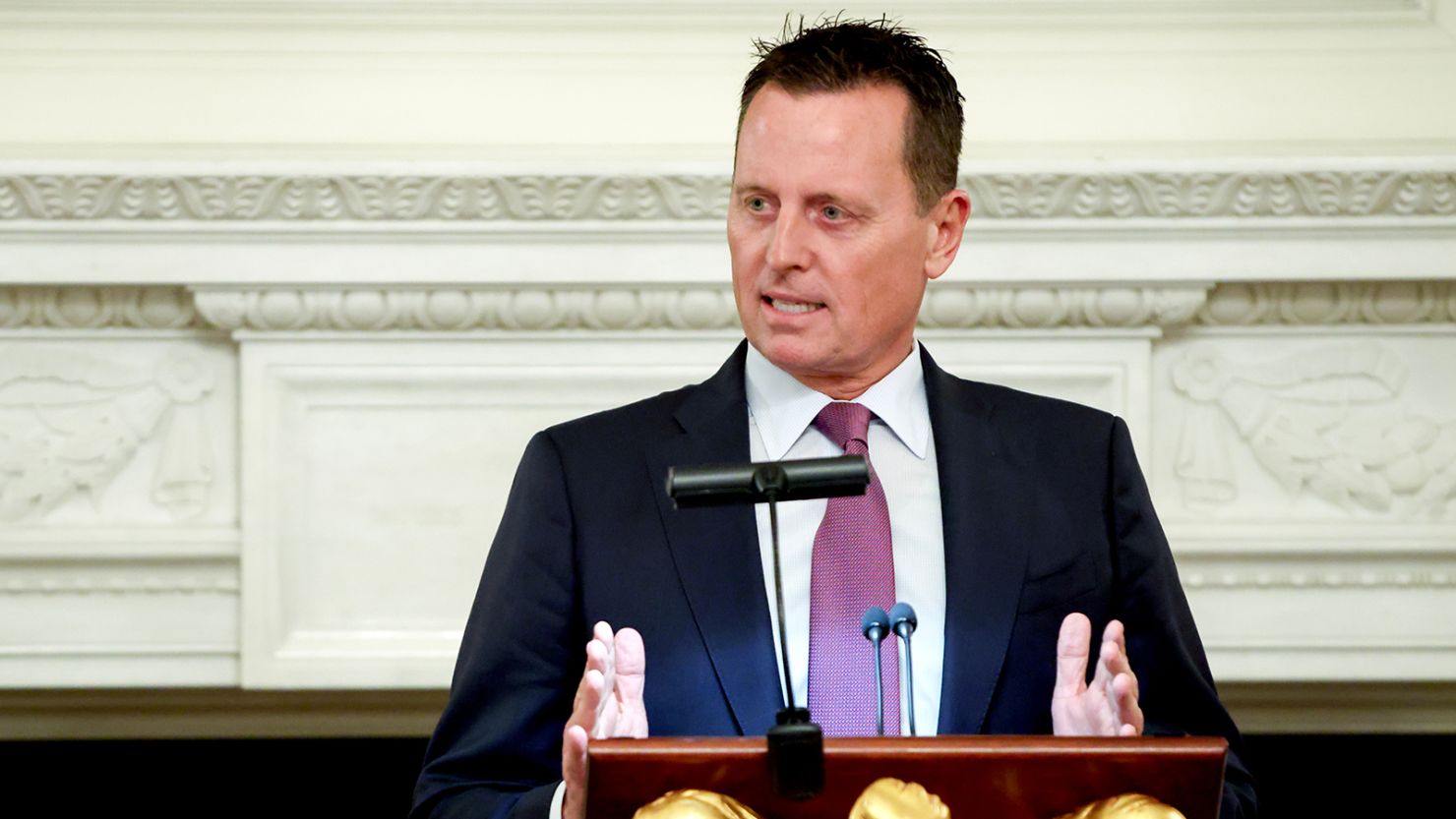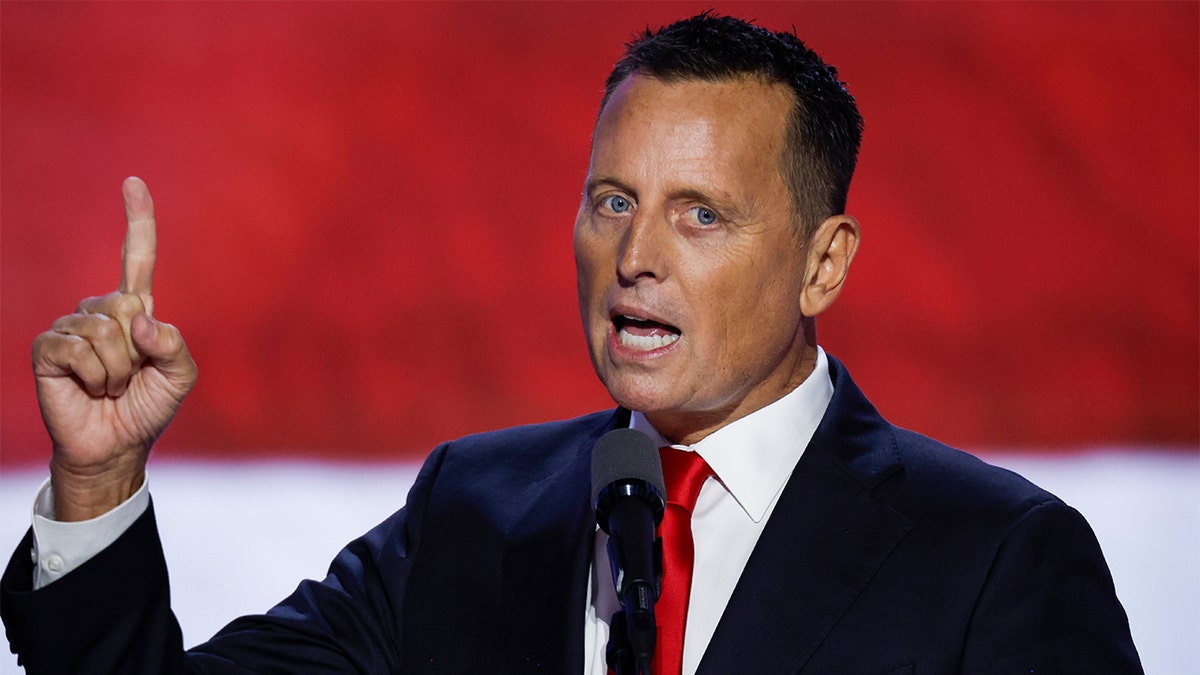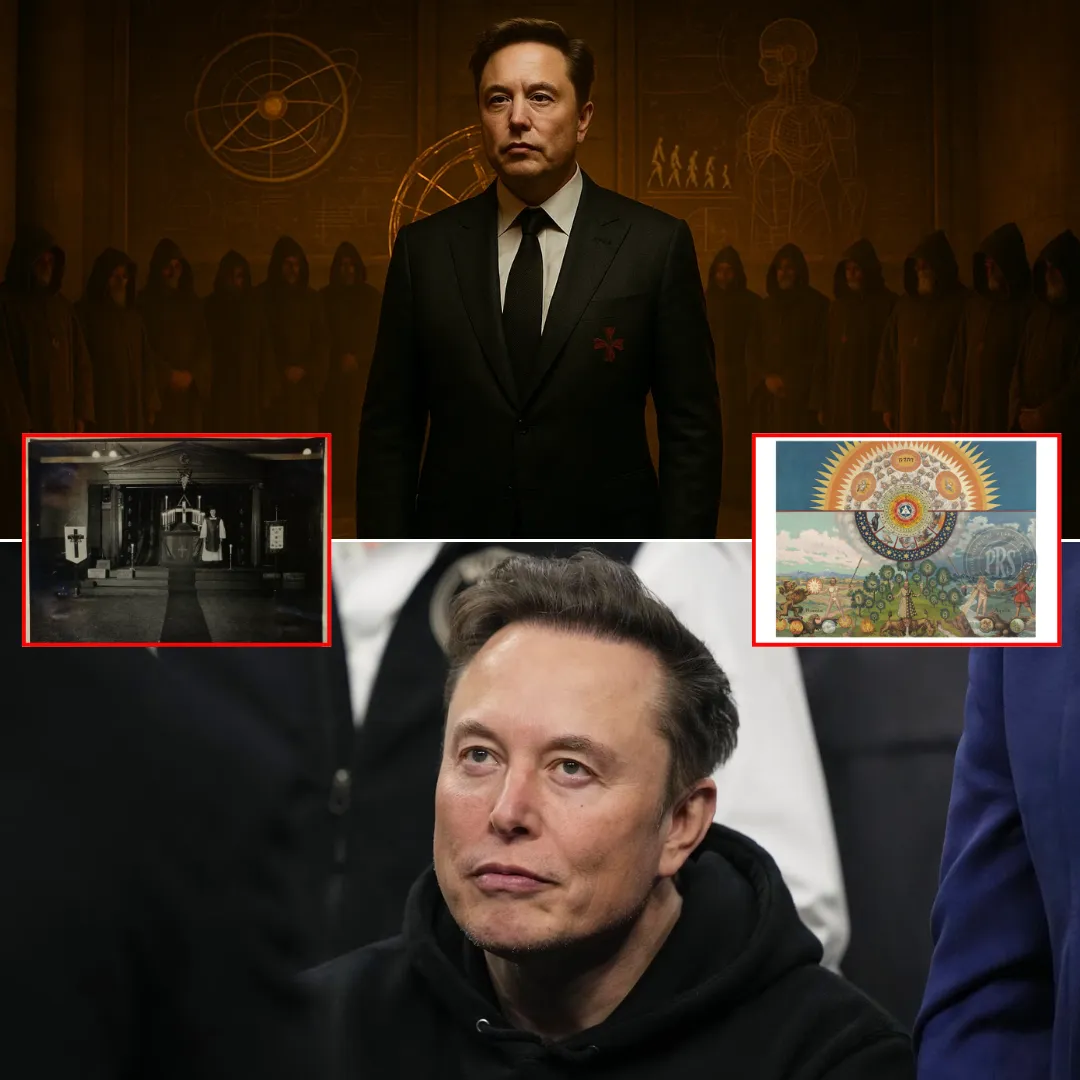
In a bold and controversial media appearance during Pride Month, Kennedy Center President Richard Grenell, the highest-ranking openly gay official in President Donald Trump’s current administration, unleashed a scathing critique of the current state of LGBTQ+ activism. Grenell accused the political left—specifically the gay left—of manufacturing grievances for financial gain and political clout, arguing that the community has already “largely achieved equality” in the United States.
Appearing on Politico’s The Conversation with Dasha Burns, Grenell's remarks quickly drew headlines for both their substance and timing. The interview was his first since President Trump faced a polarized reaction—both booing and cheering—during the Kennedy Center’s opening night of Les Misérables.
Rather than deflecting from the incident, Grenell used the spotlight to confront what he described as the LGBTQ+ left’s overreach and manipulation of identity politics.
“I think that we have largely achieved equality in this country for gays and lesbians,” Grenell said, adding that ongoing complaints from the LGBTQ+ left amount to little more than “fringe stuff.” In his view, such issues are contrived “gimmicks” designed to keep the LGBTQ+ wing of the Democratic Party relevant.

“The gay left knows that, and so therefore, they’re coming up with new gimmicks and fringe stuff to keep the money flowing and to keep the power going within the Democratic Party.”
Grenell’s argument hinges on the idea that the original civil rights aims of the gay rights movement—equal employment, marriage, and protections from discrimination—have been achieved. With those victories secured, he contends, activist organizations have turned to divisive identity politics and increasingly radical demands as a way to stay funded and politically potent.
“If you are within the Democratic Party as a gay person, what you’ve brought to the table is organizing efforts, money, and votes in the past that’s all fallen apart,” Grenell said. “You see normal gays voting for Donald Trump, for Republicans—that’s been happening for years.”
The term “normal gays” became a flashpoint during the interview. When asked by Burns to define the phrase, Grenell clarified that he meant people who do not subscribe to radical ideologies, particularly those who advocate for gender transitions in children. “Not a radical gay that says that six-year-olds should have their boobs cut off or get hormone replacement therapy,” he said bluntly.

Grenell further criticized the state of modern Pride parades, saying they have devolved into something unrecognizable compared to the movement’s early goals. “I mean, you go to a Pride parade and it’s embarrassing to be honest,” he said. “It’s real fringe, and it’s too sexual. I think that we have to start critiquing ourselves. By the way, this is extremely popular with normal gays.”
As President Trump’s most visible openly gay ally, Grenell has played a pivotal role in expanding the Republican Party’s outreach to the LGBTQ+ community. After serving as U.S. Ambassador to Germany during Trump’s first term, Grenell went on to become a senior adviser to the Republican National Committee focused on LGBT engagement.
In Trump’s current administration, his role at the Kennedy Center signals the continued elevation of nontraditional voices within the GOP.
Grenell emphasized that the fight for equality originally centered on being treated as “normal,” not as a separate category of identity. “Look, I think the reality is, is that we have to have normality,” he said. “That’s what we were fighting for in 1993. We kept saying we’re normal, we’re just like you. We just love somebody of the same sex.”

His comments come amid a wider national discourse over how Pride Month should be observed in public spaces. In early June, Hawaii raised its first rainbow flag over the State Capitol in Honolulu, joining states like Wisconsin, which has made the gesture an annual tradition for the past six years.
These public displays of LGBTQ+ support stand in contrast to conservative states such as Montana, Arizona, Utah, and Idaho, which have passed laws banning the flying of non-governmental flags—including Pride flags—on public buildings.
Some municipalities have responded with legislative creativity. In Utah, the Salt Lake City Council unanimously passed an ordinance that designates versions of the Pride flag as official city flags, thus legally sidestepping the state ban.
In Boise, Idaho, Democratic Mayor Lauren McLean issued a proclamation that similarly declared the rainbow flag an official city symbol. These maneuvers underscore the ongoing tension between local and state-level governments over LGBTQ+ recognition.

Grenell’s remarks, framed during a month of national celebration and reflection for the LGBTQ+ community, are bound to stir debate. Progressives are likely to see them as dismissive and out of touch with the lived experiences of transgender individuals and marginalized queer communities, particularly in conservative regions.
Yet among Republicans and many moderate voters, Grenell’s words may resonate as a rare and authentic voice calling out what they perceive as the politicization of sexual identity.
What Grenell is articulating aligns with a broader trend inside the Republican Party—one that increasingly embraces diversity not on the basis of progressive ideology, but through a shared rejection of leftist activism. Trump’s current administration has sought to distance itself from accusations of exclusion by pointing to figures like Grenell as proof of inclusion based on merit and values rather than identity-based loyalty.
The conversation is far from over. As Pride Month continues, so too will the national dialogue around what it means to be LGBTQ+ in America today—and whether that identity is best served through solidarity with traditional civil rights goals or continued radical expansion.
For Grenell, the answer is clear: equality has already been achieved, and anything beyond that is “fringe” politics aimed at preserving power—not people.



